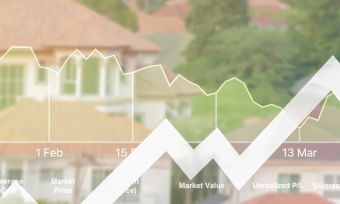This is particularly relevant right now, while everyone is talking up inflation and higher interest rates. One thing is for sure, whether you fix or float your mortgage, you cannot avoid paying higher interest rates. The question is which strategy pays the lowest amount of interest over time.
In a past life when I ran the product division of a bank, I had my team run a simulation across 20 or so years of interest rate data, to see what rate strategy performed better: float, fix short or fix long. The answer was overwhelmingly to continually fix for one year.
Short-term fixed rates perform better over the long run, provided you can handle a bit more volatility in your repayments.
This is similar to international research, which suggests that, long term, a floating rate home loan is better than a fixed rate. This would also be true in New Zealand if floating rate home loans were competitively priced. But they aren’t.
When an advertised floating rate changes, the lender’s whole portfolio of floating rate loans reprices. With fixed rate home loans, the only loans impacted by a price change are new settlements and roll overs.
There is no polite way of describing what happens here in NZ. Banks tend to milk floating rates for extra margin and compete on fixed rates.
It’s not in a bank’s best interest to compete on floating rates, because the cost completely outweighs any benefit. So, in the absence of competitive floating rates, the next best thing is the one-year fixed rate.
The three-year fixed home loan rate has increased over the past six months, from 2.79% to 3.99%, in anticipation of rate increases.
→ Related article: Mortgage Rates to hit 5%: How Much Will Your Mortgage Cost?
Fixed or floating: crunching the numbers
If you were to fix today for three years at 3.99%, to be cost neutral against fixing for one year for three years, the one-year rate in a year’s time would need to be 4.3%, and in two years it would need to be 4.5%.
The current one-year home loan rate is 3.19%, and so already anticipates a 1.5% increase in the OCR (Official Cash Rate) over the next year. On the basis that all of the expected OCR rate changes come through, and that in a year’s time the forward outlook is still for further increases, then a one-year rate of 4.3% in two years’ time looks about right.
With over $300bn of residential home loans outstanding, a 1.5% increase in rates will take $4.5bn out of disposable income. Then there is the loss of tax deductibility for investors, which will take out another $1.5bn over four years.
Increasing rates ahead of the rest of the world will strengthen the NZ dollar and hit exporters at a time when they are finding it hard to export. It doesn’t look like tourism is coming back any time soon, and a large number of small business owners have had their balance sheets ravaged.
There is a narrative about a queue of people wanting to immigrate here, but I suspect that is changing as the rest of the world opens up for business. If anything, we risk significant migration to Australia when we do eventually open up, given employment opportunities across the Tasman.
Fixed or floating: how strong is our economy?
When interest rates climb higher, the border opens, and post-Covid fiscal stimulus stops, we will find out. I’m betting it’s not as strong as market pricing implies, and our Reserve Bank will need to hit the brakes sooner than the market expects.
All of this implies that if you can handle short-term volatility and higher home loan repayments, then fixing short-term is likely to be a lower cost strategy. If you prefer a bit more of a conservative approach, then splitting your loan across different fixed rate terms reduces risk and gives you some benefit from lower short term rates.
 John Bolton founded Squirrel in 2008. He is a former General Manager at ANZ, where he was responsible for the bank’s $60bn of retail lending and deposits. He has 10 years of senior banking experience behind him in financial markets, treasury, finance, and strategy, and is a director of Financial Advice New Zealand, the industry body for financial advisers.
John Bolton founded Squirrel in 2008. He is a former General Manager at ANZ, where he was responsible for the bank’s $60bn of retail lending and deposits. He has 10 years of senior banking experience behind him in financial markets, treasury, finance, and strategy, and is a director of Financial Advice New Zealand, the industry body for financial advisers.
Enjoy reading this article?
You can like us on Facebook and get social, or sign up to receive more news like this straight to your inbox.
By subscribing you agree to the Canstar Privacy Policy





Share this article